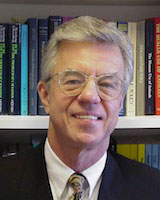Ruth R. Faden
 At the time of receiving this award, Ruth Faden was the Philip Franklin Wagley Professor of Biomedical Ethics; director, Johns Hopkins Berman Institute of Bioethics; professor, department of health policy and management, Johns Hopkins Bloomberg School of Public Health; and professor, department of medicine, Johns Hopkins School of Medicine.
At the time of receiving this award, Ruth Faden was the Philip Franklin Wagley Professor of Biomedical Ethics; director, Johns Hopkins Berman Institute of Bioethics; professor, department of health policy and management, Johns Hopkins Bloomberg School of Public Health; and professor, department of medicine, Johns Hopkins School of Medicine.
Dr. Faden is the founding director of the Berman Institute, and has taught what is believed to be the first public health ethics course in the country. She is also a senior research scholar at the Kennedy Institute of Ethics at Georgetown University. She is a co-founder of the Hinxton Group, a global community committed to advancing ethical and policy challenges in stem cell science, and the Second Wave project, an effort to ensure that the health interests of pregnant women are fairly represented in biomedical research and drug and device policies.
Dr. Faden has served on numerous national advisory committees and commissions including the President’s Advisory Committee on Human Radiation Experiments, which she chaired, and which produced a comprehensive report of the experiments conducted by various US federal government agencies.
At the time of receiving this award, Dr. Faden’s research focused on questions of social justice in health policy and global health, including the national and global challenges in pandemic influenza planning and response, vaccine policy and funding, health systems design, and fair access to the benefits of global investments in biomedical research. She also worked on ethical challenges in biomedical science and women’s health.
Dr. Faden is the author, co-author, and editor of many books and articles on biomedical ethics and health policy, including Social Justice: The Moral Foundations of Public Health and Health Policy (2006); AIDS, Women and the Next Generation (1991); and HIV, AIDS and Childbearing: Public Policy, Private Lives (1996).
Dr. Faden earned graduate degrees from the University of Chicago and the University of California, Berkley. She is a member of the Institute of Medicine, and is a Fellow of both the Hastings Center and the American Psychological Association. She was the 2011 recipient of the American Society for Bioethics and Humanities Lifetime Achievement Award.
Tom L. Beauchamp
 At the time of receiving this award, Tom Beauchamp was professor of philosophy and senior research scholar at the Kennedy Institute of Ethics at Georgetown University. He received graduate degrees from Yale University and The Johns Hopkins University, where he received his PhD in 1970. He then joined the faculty of the philosophy department at Georgetown University, and in the mid-1970s, accepted a joint appointment at the Kennedy Institute of Ethics at Georgetown. In 1975, he joined the staff of the National Commission for the Protection of Human Subjects of Biomedical and Behavioral Research, where he wrote the bulk of The Belmont Report (1978).
At the time of receiving this award, Tom Beauchamp was professor of philosophy and senior research scholar at the Kennedy Institute of Ethics at Georgetown University. He received graduate degrees from Yale University and The Johns Hopkins University, where he received his PhD in 1970. He then joined the faculty of the philosophy department at Georgetown University, and in the mid-1970s, accepted a joint appointment at the Kennedy Institute of Ethics at Georgetown. In 1975, he joined the staff of the National Commission for the Protection of Human Subjects of Biomedical and Behavioral Research, where he wrote the bulk of The Belmont Report (1978).
Dr. Beauchamp’s research interests include the ethics of human subjects research and animal care and use, as well as the place of universal principles and rights in biomedical ethics, methods of bioethics, Hume, the history of modern philosophy, and business ethics. At the time of receiving this award, he was conducting a study in collaboration with several other investigators, including Dr. Ruth R. Faden, which focused on the conceptual, moral, and policy dimensions of the distinction between research and treatment.
Dr. Beauchamp currently holds a National Science Foundation award to advance work in animal research ethics, together with a group of investigators headed by Hope Ferdowsian at The George Washington University. This project is centered on an analysis of the concept of vulnerability to harm, and the creation of an anatomy of potential harms from research interventions.
Another of Dr. Beauchamp’s priorities has been his participation in the development of a program in pharmaceutical ethics at the Eli Lilly Company. Lilly has been one of the first pharmaceutical companies to establish a standing bioethics committee, and Dr. Beauchamp has been involved in this initiative from its inception.
Dr. Beauchamp is the author and co-author of numerous books, including Principles of Biomedical Ethics (2008) which has become the standard book for medical ethics classes all over the world; The Human Use of Animals (2008); and Philosophical Ethics (2001). Many of his articles were republished in early 2010 under the title Standing on Principles: Collected Works (2010). Dr. Beauchamp has edited and co-edited numerous anthologies, journals, and books that span a number of distinct disciplines, including journalism and epidemiology, and he co-edited The Oxford Handbook of Animal Ethics.
Dr. Beauchamp is a 2011 recipient of the Hastings Center’s Henry Knowles Beecher Award. He was also the 2004 recipient of the American Society for Bioethics and Humanities Lifetime Achievement Award and the 2003 recipient of the Georgetown University Career Recognition Award. In 1994 Dr. Beauchamp received the McDonald-Merrill-Ketcham Memorial Award from the University of Indiana.